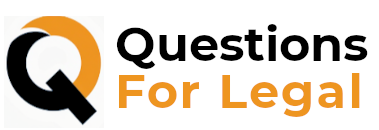The concept of theft, in its simplest form, refers to the act of taking someone else’s property without their permission. It encompasses a wide range of actions that result in the unlawful acquisition of another person’s belongings, whether it be tangible assets, intellectual property, or even personal information. The legal definition of theft varies from one jurisdiction to another, but at its core, it represents a violation of an individual’s right to possess and use their own property without interference.
Why It Matters: Recognizing the Spectrum of Theft
In our modern society, where technological advancements have significantly transformed the landscape of criminal activities, comprehending the nuances of various theft types has become more crucial than ever. By understanding the diverse forms of theft, individuals and businesses can take proactive measures to safeguard their assets and personal information. Moreover, a deeper awareness of the intricacies of theft can enable us to appreciate the significance of implementing robust security measures, both in the physical and digital realms. Recognizing the different types of theft is not only a means of protecting oneself but also a step towards fostering a more secure and equitable society.
Table of Contents
- Why It Matters: Recognizing the Spectrum of Theft
- Common Types of Theft
- Specific Types of Theft
- Modern Forms of Theft
- Preventative Measures and Legal Recourse
- Final Thoughts
Common Types of Theft
Petty Theft: Unveiling the Nuances
Petty theft, often considered a minor offense, involves the unlawful taking of property or assets of relatively low value. This can include instances such as shoplifting, stealing personal belongings, or any other act that involves the unauthorized appropriation of someone else’s property. Although petty theft may seem inconsequential, its repercussions can still be significant. Offenders caught engaging in petty theft may face legal consequences and penalties, aiming to deter such behavior and uphold the sanctity of property rights.
Grand Theft: Delving into the Distinctions
Contrasting with petty theft, grand theft constitutes a more serious offense, typically involving the unlawful acquisition of higher-value assets. The line between petty theft and grand theft often hinges on the monetary value of the stolen goods, varying in different jurisdictions. Instances of grand theft can range from car theft to high-value property embezzlement. Understanding the distinctions between these types of theft is crucial, as the severity of consequences and penalties for grand theft can be considerably more severe than those for petty theft.
Unveiling the Impact: Consequences and Penalties
Both petty theft and grand theft carry their own set of consequences and penalties. Depending on the severity of the offense and the jurisdiction in which the crime occurs, individuals found guilty of either form of theft may face fines, community service, or even imprisonment. Recognizing the implications of these consequences underscores the importance of upholding ethical principles and respecting the rights of others, fostering a culture of mutual trust and respect within our communities.
Specific Types of Theft
Identity Theft: Unraveling the Intricacies
In this digital age, the threat of identity theft looms ominously, with perpetrators employing sophisticated methods to acquire sensitive personal information. Identity theft occurs when an individual’s personal data, such as their Social Security number, credit card details, or other identifying information, is unlawfully obtained and exploited for fraudulent activities. Instances of identity theft can lead to devastating consequences, including financial loss, damaged credit scores, and emotional distress for the victims. To combat this pervasive threat, individuals must remain vigilant and employ various preventative measures, such as safeguarding personal information and monitoring financial transactions regularly.
Burglary: Beyond Mere Property Loss
Burglary, often misconstrued as a synonymous term for theft, is a distinct criminal offense that involves the unauthorized entry into a structure with the intent to commit theft or other felonious activities. Unlike theft, which primarily concerns the act of unlawfully taking someone else’s property, burglary encompasses the illegal intrusion into a premise, such as a home or business, with the intent to commit a crime. Understanding the differences between burglary and theft is imperative in comprehending the legal implications associated with each offense. The consequences and penalties for burglary can be severe, reflecting the violation of the sanctity and security of personal spaces.
Upholding Security: Navigating Preventative Measures
In the face of evolving criminal tactics, proactive measures are crucial in combating specific types of theft. Implementing robust security protocols, such as utilizing secure passwords, employing encryption methods, and investing in home security systems, can serve as effective deterrents against identity theft and burglary. Empowering individuals with the knowledge and tools to safeguard their personal information and physical spaces is instrumental in mitigating the risks associated with these pervasive forms of theft.
Modern Forms of Theft
Cyber Theft: Unraveling the Digital Menace
In an era dominated by technological advancements, the threat of cyber theft looms as a persistent concern. Cyber theft encompasses a range of illicit activities conducted through digital platforms, including unauthorized access to sensitive information, financial fraud, and online identity theft. With the ever-increasing interconnectedness of our digital landscape, individuals and businesses alike are vulnerable to cyber threats, highlighting the critical need for robust cybersecurity measures. Understanding the complexities of cyber theft is paramount in safeguarding sensitive data and mitigating the far-reaching consequences of online criminal activities.
Intellectual Property Theft: Safeguarding Creativity and Innovation
Intellectual property theft involves the unauthorized use, replication, or distribution of proprietary creations, such as patents, trademarks, and copyrighted materials, without the owner’s consent. This form of theft not only poses a significant threat to the economic interests of businesses but also undermines the creative efforts and innovation of individuals. The impact of intellectual property theft extends beyond financial losses, often impeding the progress of industries and stifling the incentives for future innovations. Implementing stringent legal protections and emphasizing the significance of respecting intellectual property rights are crucial in combating the pervasive issue of intellectual property theft.
Upholding Integrity: Legal Implications and Protective Measures
dThe legal implications surrounding cyber theft and intellectual property theft are multifaceted, demanding a comprehensive understanding of the intricate legal frameworks governing digital and creative domains. Fostering a culture of compliance and ethical conduct within the digital sphere is instrumental in curbing cyber theft, while reinforcing the importance of intellectual property rights serves as a cornerstone in preserving the integrity of creative endeavors. By prioritizing legal safeguards and advocating for stringent enforcement measures, we can collectively fortify our digital infrastructure and creative landscapes against the pervasive threat of modern theft.
Preventative Measures and Legal Recourse
In the face of prevalent threats of theft, implementing robust security measures is vital for both individuals and businesses. This includes maintaining strong passwords, utilizing encryption methods, and regularly updating security software to thwart cyber theft. For physical security, measures such as installing surveillance systems, employing security personnel, and securing entry points can help deter theft and burglary. Furthermore, fostering a culture of vigilance and awareness among employees and community members is essential in preventing various forms of theft.
Taking Action: Reporting and Legal Recourse for Theft
In the event of theft, swift and accurate reporting is crucial to initiate the legal recourse process. Reporting the incident to the relevant authorities, such as law enforcement agencies and regulatory bodies, is essential in ensuring that appropriate actions are taken to address the crime. Additionally, victims of theft should seek legal guidance and support to navigate the complex legal procedures and pursue justice. By adhering to the prescribed reporting mechanisms and legal protocols, individuals and businesses can actively contribute to the collective efforts in curbing theft and upholding the rule of law.
Enforcing Accountability: Role of Law Enforcement and Authorities
Law enforcement agencies and regulatory authorities play a pivotal role in upholding the integrity of the legal system and safeguarding communities against theft. By conducting thorough investigations, collaborating with relevant stakeholders, and implementing stringent law enforcement measures, authorities can deter criminal activities and ensure that perpetrators of theft are held accountable for their actions. Moreover, fostering collaborative partnerships between law enforcement agencies and the public can facilitate the timely resolution of theft cases and promote a safer and more secure environment for everyone.
Final Thoughts
The prevalence of theft in its numerous manifestations necessitates a collective commitment to vigilance and prevention. By fostering awareness among individuals, businesses, and communities, we can cultivate a culture of heightened vigilance and resilience against potential threats. Empowering ourselves with the necessary knowledge and tools to recognize and mitigate the risks of theft is crucial in fortifying our personal and collective security.
As responsible members of society, it is incumbent upon us to take a proactive stance in addressing the issue of theft. This entails advocating for the implementation of stringent security measures, supporting and engaging with law enforcement agencies, and promoting ethical practices in our personal and professional endeavors. By fostering a unified front against theft, we can create a safer and more secure environment for all, where the rights and property of individuals and businesses are respected and protected.

An accomplished defense lawyer who, after hours of navigating the complexities of the legal system, enjoys spending free time honing his marksmanship skills at the shooting range.





